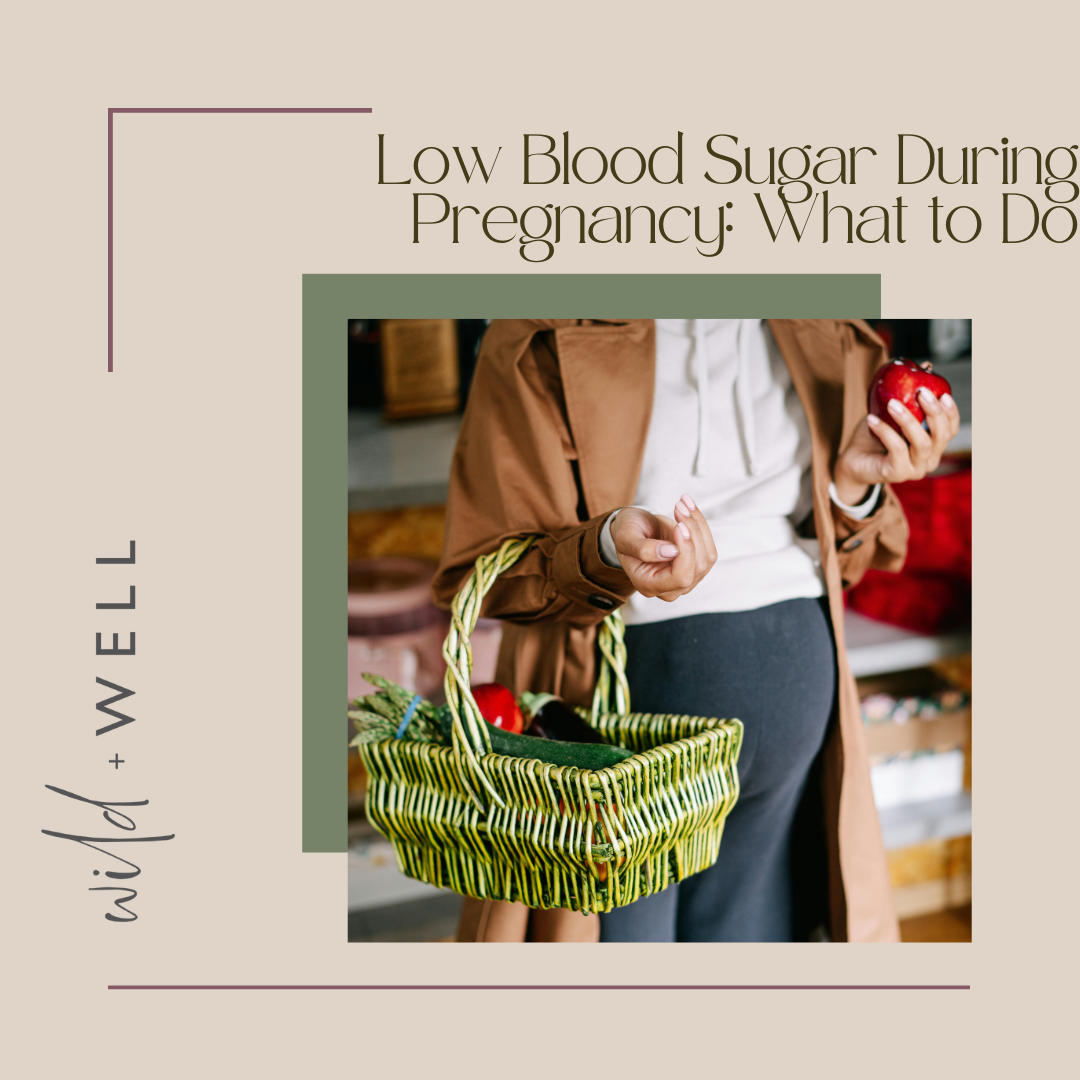Folic Acid vs. Folate in Prenatal Vitamins: Everything You Should Know About Methylation
You thought you were holistically minded before pregnancy.
But now that you have a baby on the way, you’ve never checked ingredients or stuck to an ancestral diet so thoroughly.
It’s normal for moms to protect their babies from the dangers of the world—including synthetic ingredients and environmental toxins.
In fact, it’s instinctual.
You do your thing, mama.
One thing I’ve noticed when it comes to prenatal care is that many women have questions about prenatal vitamins. We need an extra boost of nutrients while we’re growing a baby, and prenatal vitamins (along with a diet of whole foods) can supply that.
But don’t get tricked by clever marketing. Not all prenatal vitamins are good for you. In fact, for women who struggle with methylation (and have the MTHFR gene mutation), prenatal vitamins can actually make symptoms worse.
It all boils down to what’s in your prenatal vitamin, particularly: folate vs folic acid.
Table of Contents
What’s the Difference Between Folic Acid, Folate, and Vitamin B9?
Although these terms are used interchangeably, there are distinct differences between folate and folic acid.
Vitamin B9 is an essential vitamin for the body responsible for things like cellular growth, red blood cell formation, and DNA creation. It’s known by other names, though. Specifically, folic acid and folate.
Folic acid is the manufactured form of vitamin B9. Meaning it’s created synthetically and has questionable bioavailability, especially for people with the MTHFR gene mutation.
Folate, however, is naturally occurring. It’s the form of vitamin B9 that’s found in foods like leafy greens, sunflower seeds, beef liver, and fresh fruits.
Here’s an easy breakdown:
• Vitamin B9: An essential vitamin for cellular function and healthy pregnancy.
• Folate: The natural form of vitamin B9, metabolized in the body easily.
• Folic Acid: The synthetic form of vitamin B9, often found in fortified foods.
• Methylated Folate: Natural folate that’s already active and ready for the body to use.
Checking for folate vs. folic acid on your prenatal vitamin ingredients label is a great way to determine whether or not the entire vitamin was made synthetically.
Understanding MTHFR and Its Impact on Methylation
Methylation occurs in the cell—maintaining, creating, repairing, and protecting DNA. The process of methylation is extremely complex and requires multiple different chemical reactions for it to occur. But all you need to know is that methylation is working constantly to benefit your cells and whole-body health.
Here are just a few things methylation is responsible for:
• Filtering out toxins (like mycotoxins and heavy metals).
• Preventing oxidative stress and eliminating free radicals from the cell.
• Removing inflammation from the brain.
• Helping the hormone-creation process.
• Nervous system regulation.
Here’s where things get tricky. Methylation is a multi-step process and requires the body to turn nutrients into their most active form. Folate (an important ingredient for methylation) becomes methylfolate, which is then absorbed and used in the body.
Not everyone is able to fully metabolize folate, though. People with the MTHFR gene may really struggle to metabolize folate, especially if it’s in the form of folic acid.
This can create all sorts of problems since unmetabolized folic acid can remain in the body and become toxic.
It’s recommended that people with the MTHFR gene only take folate (not folic acid). Even better, methylfolate (or active folate) can help to supercharge the methylation process, drastically improving your cellular wellness, energy levels, and whole body health.
Many of my clients report feeling better than ever even during the prenatal period, since their bodies are finally given the tools for proper methylation.
Folic Acid vs. Folate in Prenatal Vitamins
Vitamin B9 is one of the most essential nutrients for pregnancy. Without it, you may be at risk for neural tube defects and other birth complications. It makes sense that this nutrient is one of the biggest decision makers when it comes to choosing a prenatal vitamin.
But how do you know the vitamin B9 you’re consuming is good for you?
Most drugstore prenatal vitamin brands contain folic acid—the synthetic form of folate. Folic acid is easier and cheaper to produce, so companies use it as a way to save money during manufacture.
But can folic acid actually help your baby grow?
If you have the MTHFR gene mutation, probably not. This mutation interferes with methylation and the metabolism of vitamin B9. In the synthetic form, it’s unlikely that folic acid will reach your cells. Instead, it may remain in the body and become toxic.
The women I work with who find out they have MTHFR after taking a synthetically-created prenatal vitamin noticed an uptick in mental health issues—particularly postpartum depression. I believe this is linked to an increased level of folic acid that becomes toxic.
• If you suspect the MTHFR gene, you should always take a prenatal vitamin with foliate. Active folate is ideal.
• If you don’t have the MTHFR gene, I still recommend taking folate. Your body can recognize folate better and metabolize it—making it more bioavailable to you and your baby.
My clients who have gone through previous pregnancies before switching to folate feel infinitely better once we get this one ingredient straightened out. It’s a night and day difference. They experience things like more energy, better focus, and improved mental health—all thanks to absorbable folate.
Prenatal Vitamins without Folic Acid
Now that you know the risks of taking synthetic folic acid, let’s find a prenatal vitamin that works to nourish you and your baby without exposing you to potentially toxic ingredients. These are my recommendations…
1) The Needed Optimal Prenatal
I cannot gush enough about this brand of holistic prenatal vitamin. This is one of my top recommendations for pregnant mamas with MTHFR, because it contains methylfolate—or folate that’s already active and ready for the body to use.
If your body struggles with methylation, this is the perfect solution to ensure vitamin B9 is getting to your cells and to your baby.
2) The Seeking Health Optimal Prenatal
Also containing active folate, this prenatal vitamin is a must-have for my pregnant mamas. Many of my clients report less morning sickness, more energy, and better mental health when using this prenatal option. The body isn’t working over-time to methylate a synthetically-produced ingredient, so it can allocate more energy to you and baby.
This is the prenatal that I personally chose to take during most of my pregnancy!
3) The FullWell Women’s Prenatal
This holistic prenatal vitamin contains folate—sourced naturally. While the folate isn’t active, it’s still a great option for women who don’t have the MTHFR gene mutation, and want to find a healthy and bioavailable prenatal vitamin.
Want more options? I wrote a whole blog post about my favorite holistic prenatal vitamins—and (hint) none of these recommendations have folic acid.
Supercharge the Methylation Process and Protect Your Pregnancy
Methylation may not seem like a big deal to you—but it is a big deal to your body. The way you metabolizes vitamin B9 can directly impact your energy levels, mental health, and even impact brain tissue.
As a holistic nutritionist, I know every nutrient has its place and needs to be consumed in the healthiest way possible. For vitamin B9, this means a natural source that comes from food, not a lab. Attention to detail means everything to how you feel now during your prenatal journey and later during your postpartum journey.
Interested in running some tests to see if you have the MTHFR gene mutation? Let’s get to the bottom of your symptoms.









